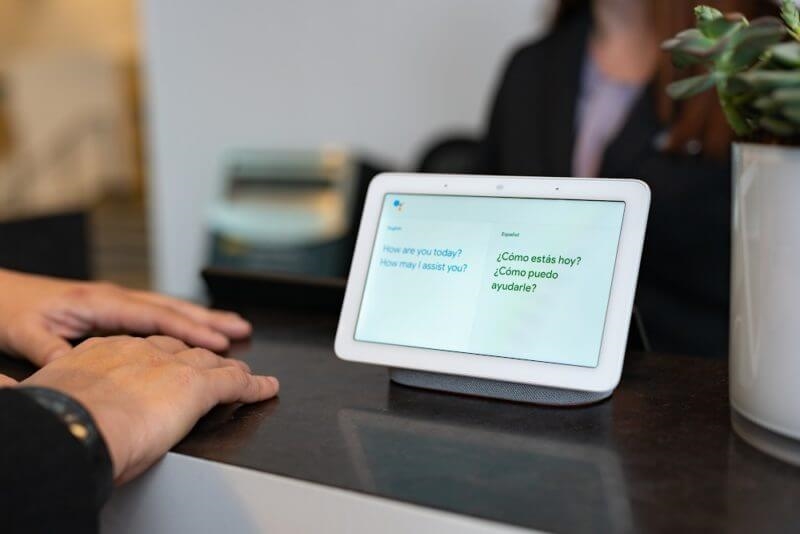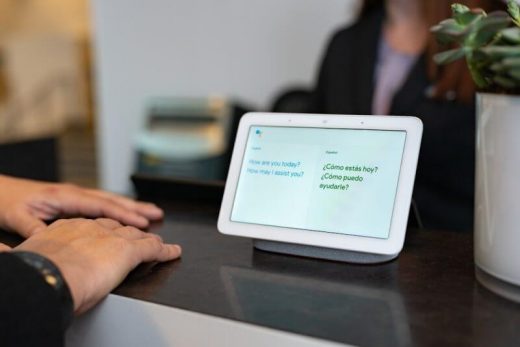Google rolls out ‘interpreter mode’ for Home and smart displays
Users invoke the feature in one of several ways and it keeps going until you verbally turn it off.
Google Translate is now rolling out Google Home devices. The capability was first announced at this year’s CES. Since then, the company has been testing Translate on smart displays in various hotels in selected markets: Las Vegas, New York, San Francisco.
Languages displayed side-by-side. Users of Google-powered smart displays or smart speakers can invoke interpreter mode at home by saying “Ok Google be my interpreter” or “Ok Google help me speak [language].” It works in 26 languages. The Google Home Hub smart display also features a side-by-side readout of the phrase and translation.

Once in interpreter mode, users can request an open-ended number of phrase or word translations without using “Ok Google” between each of them. In my testing, the experience was intuitive and the translations appeared relatively accurate (based on my high-school-level Spanish and French).
It also seemed like I could have continued asking “how do I say . . . ” indefinitely. In fact, as I kept talking to Google Home it kept translating everything I was saying (into German). Pausing didn’t quit interpreter mode; I had to say “Ok Google stop.”
This is a fun and interesting feature at home; it’s not clear how many people will use it. But it makes enormous sense in hospitality or customer service contexts such as the ones Google has been testing.
Why you should care. Google and Amazon are still figuring out use cases for their smart speakers and displays. Any of these new features and capabilities (e.g., Translate) help with engagement and perceived utility.
Some number of hospitality, retail and restaurant businesses that cater to tourists or non-native language speakers may find commercial value in Google’s interpreter mode. But in the larger market, the bigger bet is that eventually Google Home and Home Hub become transactional platforms for booking and ordering, leveraging the existing infrastructure that Google is building online.
We will ultimately see (or hear) ads on smart displays and smart speakers. However, Google will be slow to roll them out.
Marketing Land – Internet Marketing News, Strategies & Tips
(20)



